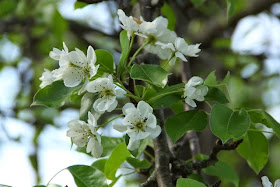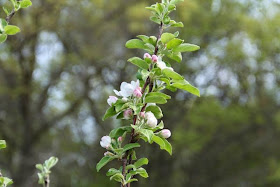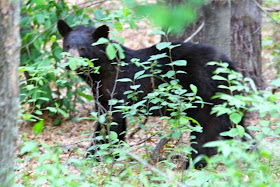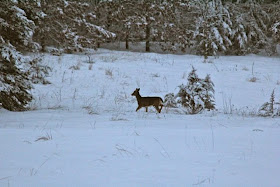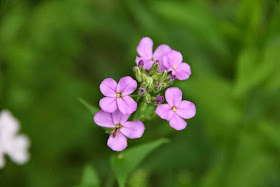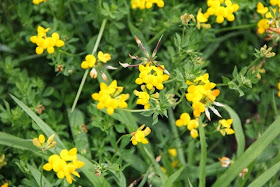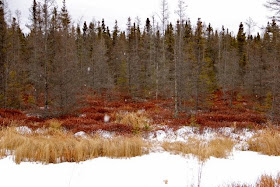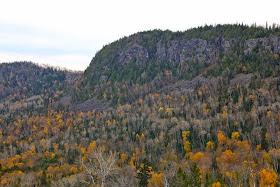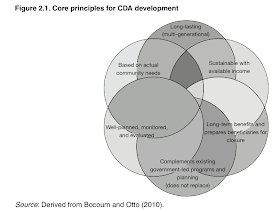Today is the 8th anniversary of Molly's death. I suspect she'd see things a little like the following but would have been much more humorous in her response.
Do you suppose there's a Minnesota Spring, or a United States Spring in our future? I'm not referring to the seasonal change that's several months or so away and that comes every year. I'm wondering if Minnesota and the rest of the country may some year soon experience uprisings similar to those of the Arab Spring of 2012 or the original and real Boston Tea Party. The reason I raise that question is I'm seeing what looks to me like an increasing disconnect between what our leaders do and what the rest of us need. Here's a for instance:
President Obama noted the significance of climate change during his recent State of the Union message.
“No challenge – no challenge – poses a greater threat to future generations than climate change,” Obama said in his sixth State of the Union address Tuesday night. “2014 was the planet’s warmest year on record. Now, one year doesn’t make a trend, but this does: 14 of the 15 warmest years on record have all fallen in the first 15 years of this century.”The future generations he refers to are the same ones who have already seen wealth concentrated distressingly among the top 1% and debt, including school debt that can't be discharged in bankruptcy, concentrated among the 99% of us who make up the majority in this country. Two years of free community college does nothing for those who are already faced with very limited prospects for ever achieving the American Dream, if part of the dream includes home ownership. Unless, of course, the federal government and banks change the debt to income ratios needed to qualify for a mortgage which would probably mean much higher (subprime) interest rates, increased profits for banks, and mortgage insurance financed by the rest of us.
To get back on track, shortly after noting the significance of climate change to the future of the country, the President opened areas of the southeast Atlantic to drilling for oil. Is that likely to require more pipelines crossing environmentally sensitive parts of the country? Will the product be shipped by rail in explosion-prone tank cars because regulators don't insist the private sector move quickly enough because it might diminish the further aggregation of excess profits by the 1%? But, of course, we know that BP has completely cleaned up the Gulf spill and the oil industry has improved its practices so a "Deepwater Horizon" blowout could never occur again. Right? Right?
It seems to me, more and more every day, that class warfare has been surreptitiously declared a long time ago; that it was initiated by the 1% and the politicians they underwrite, and that the rest of us have been losing that war for several generations. I am increasingly incredulous at how many of us continue to vote against our best interests, when we bother to vote at all. Maybe Minnesota, and the U.S., need a new constitutional convention, so we can write a constitution that explicitly states that corporations, if they are considered persons, cannot be limited liability persons. They must also face full liability, including a death penalty, or they cannot be considered persons at all. What do you think?
********************************************
Thanks for visiting. Come again when you can.
Please be kind to each other while you can.
Saturday, January 31, 2015
In memory of Molly Ivins
Friday, January 30, 2015
A job creation strategy for Minnesota?
It's going to be interesting to see how the 2016 elections play out. Greater Minnesotans, to use that term geographically, put the Republicans in charge of the House. That, combined with the fact that the Senate wasn't up for election, results in a Star Tribune report that reads (in part):
"Environmental laws are facing fresh scrutiny at the Capitol as a new Republican majority in the House and the sway of Iron Range DFLers in the Senate make their power felt."It seems the reporter, or the legislature, or all of the above, may have missed the realization that jobs and the environment are mutually supportive, not contradictory. China's economy has been growing by leaps and bounds in recent years. Historically, China has not been known for strict environmental regulations. Beijing's mayor and the city's population could provide some guidance to those with insufficient environmental protections.
"The 21 million inhabitants of China’s capital appear to be engaged in a city-wide rehearsal for life on an inhospitable planet. Only it’s not a rehearsal: the poisonous atmosphere is already here."
source: Twitter
Without a lot of additional effort, we could create similar conditions for Minnesota. Is that the kind of future we want? Uninhabitable cities aren't great markets, except for oxygen masks.
In Minnesota, we're already looking at 40% of our waters that don't meet water quality standards. The Reserve Mining case was settled before I moved here. Apparently, some folks aren't aware of it or have come to believe that it could never happen again. I wonder if those same folks noticed a very recent report identifying that 10% of Minnesota's North Shore infants have unhealthy levels of mercury in their bloodstreams. Instead of putting more Minnesotans (and tourists) at risk by weakening environmental protections, might it be possible for Minnesota's leaders (of both parties) to focus on the jobs created by protecting Minnesota's basic resources, her (our) lands, waters and, especially, people? Might that be a way to political success in 2016? Or, will both major political parties engage in a race to the bottom, to the detriment of Minnesota and Minnesotans, and then learn that Minnesotans still value their environment as well as their economy? Let's keep in mind that Minnesota isn't alone in facing these choices. If we work hard enough, quickly enough, we might have a soft landing and a decent platform to run on next year.
[UPDATE: for an alternative perspective on the boundaries, see the sidebar's A Scientist’s View of ‘Planetary Boundaries’ from the Ground Up – in Rural India]
source: Guardian
By Stephen BurtButterfly with Parachute
A real one wouldn't need one,but the one Nathan draws surely does:four oblongs the size and color of popsicles,green apple, toasted coconut and grape,flanked, two per side, by billowing valentine hearts,in a frame of Scotch tape.Alive, it could stay off the floor,for a few unaerodynamic minutes;thrown as a paper airplane, for one or two more.
Very sensibly, therefore,our son gave it something, not to keep it apartfrom the ground forever, but rather to make safe its descent.When we ask that imagination discover the limitsof the realworld only slowly,maybe this is what we meant.
********************************************
Thanks for visiting. Come again when you can.
Please be kind to each other while you can.
Thursday, January 29, 2015
The more things change, the more...
One of the nice things about my digital photo library is that it's easy to compare year to year what triggered a flurry of photo taking. For the most part in years past, the last couple of weeks of January have not prompted much photography. This year is following the same pattern. Birds, plus occasional sunshine and shadows, are about all that appears active. The number of chickadees coming to and going from the feeders today seems beyond counting. They move quickly enough that they may well be uncountable. A hairy woodpecker is hopping about the bare branches of an oak tree, waiting for an opening at the suet. Yesterday, a pileated woodpecker fed briefly before hippy-dippy flying away at movement (mine) inside the house. Goldfinches have been scarce around the feeders during the past several days, maybe due to our lack of snow storms (not that I'm complaining about that).
chickadee and goldfinches at feeders
Photo by J. Harrington
However, out of sight in the woods nearby, I suspect there's a black bear sow giving birth to cubs. At least I hope so. Bringing in feeders and keeping the trash can in the garage for Spring, Summer and Autumn are minor annoyances, while watching bear cubs cavort during those same times of year is a major pleasure. So, while bears are birthing, others in the neighborhood are just getting around to mating. This is the time of Winter that raccoons and foxes start thinking about more than food and sleeping. Great horned owls may have started nesting a couple of weeks ago. One of the things I enjoy about Minnesota's seasons is the way there's often some kind of overlap in them. Each seems to foretell the one that follows. If you're interested in resources for what to look for day to day throughout the seasons, I can recommend Jerry Wilbur's Wit and Wisdom of the Great Outdoors, Larry Weber's Backyard Almanac and Jim Gilbert's Nature Notebook.
It took nature thousands of years plus to work out these seasonal timing arrangements. It took us and the industrial revolution less than two hundred years to mess them up. How long do you think it will take us to fix that? Maybe, with the help of god, not long.
By Wendy VidelockChange
Change is the new,
improved
word for god,
lovely enoughto raise a song
or implicate
a sea of wrongs,mighty enough,
like other gods,
to shelter,bring together,
and estrange us.
Please, god,we seem to say,
change us.
********************************************
Thanks for visiting. Come again when you can.
Please be kind to each other while you can.
Wednesday, January 28, 2015
The seeds of change
For the first several years after we moved onto The Property, we tried, repeatedly, and failed, repeatedly, to grow prairie flowers and/or fruit bushes on our little piece of sand plain. The blue stem grasses (little, I think) have taken hold but haven't, as far as I can tell, thrived. Nor have they disappeared. We didn't, and still don't, want to spend the money to have someone like Prairie Restoration come and do a controlled burn prior to a replanting. Plus, one of us was, and still is, very nervous about controlled burns close to the house we moved into when we moved onto The Property.
pear tree blossoms
Photo by J. Harrington
In my typical American instant gratification way, I wanted results, now. I thought since the land "belonged" to us, I should be able to bend it to my will. That was twenty-plus years ago. One of the handful of fruit trees that we've planted, a pear tree, has survived. It provides beautiful blossoms in May, pears for us, and dead fall fruit and browse for the neighborhood deer. I'm hopeful that two new apple trees, planted cared for by the Daughter Person and her Husband Person, will make it successfully through this, their second, Winter.
apple tree blossoms
Photo by J. Harrington
For most of the time we've lived here, I've been trying to figure out some way to make The Property earn its keep. Occasional hoards of black flies and deer flies make Summer vegetable gardening work extremely annoying. The blueberry bushes didn't do all that well on the rapidly draining sand. Slowly, very slowly, it started to occur to me that perhaps the best thing to do with The Property was to relax and enjoy what it provides: regular views of deer, turkeys, song birds, wood peckers, geese, ready access to the fields and woods, and much peace and quiet. Just about the time I started thinking I'd finally got a handle on this Living with Nature routine, I read Adrian Ayres Fisher's A Private Solstice Celebration [see right hand side bar] and learned just how far I have to go on my journey to becoming a naturalist. It's more complicated than I remember reading about in A Naturalist Buys an Old Farm.
one of the neighbors
Photo by J. Harrington
To be honest, I'm not sure it would ever have occurred to me to collect local seeds, nor would I have known how to do so. Waterfowl, game fish, deer, a little foraging for fruits and berries, I had learned about them for entertainment and utilitarian purposes. Those who impress me these days can list "Rudbeckia, Echinacia, cup plant, rosin weed, prairie dock, milkweed, goldenrod, aster, Helianthus, bee balm, big and little bluestem, Indian rye, bottlebrush grass..." and know what they're referring to.
I used to wonder why anyone these days would bother to learn about all those different "useless" plants. Then I remembered a trip I took to Canada years ago for a bear hunt. (It was so long ago I didn't even need a passport, nor did I reduce to possession a bear.) I was in awe about the knowledge the local guides and outfitters had about black bears. They seemed similarly impressed by my ability to identify the various species of ducks in the flooded roadside ditches. We learn about what we care about. We often see only what we're looking for. Recognizing the locals is a sign we know we're home.
I'm still wondering about setting up bee hives, since we have some frequently hungry neighbors who don't always settle for bird feeders. Maybe I'll decide that watching bears without watching bee hives is the way to go. Maybe not. Whatever I decide will have more to do with what I want to spend time doing than with what I think The Property owes me. It's paid me plenty over the years. In addition to learning from people like Adrian, I try to learn from those like Wendell.
February 2, 1968
In the darkness of the moon, in flying snow, in the dead of winter,
war spreading, families dying, the world in danger,
I walk the rocky hillside, sowing clover.
- Wendell Berry
********************************************
Thanks for visiting. Come again when you can.
Please be kind to each other while you can.
Tuesday, January 27, 2015
A promise of things to come
I suspect the local snow lovers won't appreciate this, but I'd rather have two to three feet of snow fall where I used to live rather than where I live now. On the other hand, if global warming means Minnesota Winters will be milder but noticeably less sunny and more icy, that's not what I consider an improvement.
Earlier today I cheered myself by taking a look at some of last year's photos of wildflowers and flowing water. In case you need some cheering and portents of Spring 2015 might help, please enjoy these.
open water with ice floe, St. Croix River
Photo by J. Harrington
trees in flower, Wild River State Park
Photo by J. Harrington
Hairy Rock Cress (Arabis pycnocarpa?)
Photo by J. Harrington
I'm not a person who will ever hope for a "better" Winter, but a new Spring, even if it's not improved, gives me hope. This poem reminds me of my urban boyhood. It's nice to remember Spring but not wise to spend too much time either remembering or anticipating.
By Jesús Papoleto Meléndezspring again
spring came /the same way winter left& summer will come& summer will leave; slowly/ when no one's expecting itwhen people are tired of waiting
like waiting for welfare checks /a long wait/ a slow wait
the windows are openbut butterflies don't fly into display a sense of love
/ only housefly enterto sit on food & eat crumbs
& dreams escape /& become stolen & lost & used& wasted & thrown away
& dreamed anew
the junkies sit on the stoop& nod themselves into dreams/ maybe into the ones which escaped& stinkball is played& on warm nights the ghetto musicians playour ghetto song
on garbage can tops & bang on empty coke bottles& sound real chévere
:tomorrowthe junkies will sit on the stoop& nod themselves into dreams /stickball will be played /the streets will become chalkedwith 1st and 2nd & 3rd bases
hop scotch will become a game& tops will spin on sidewalks /
& everyone will anticipate summer.
********************************************
Thanks for visiting. Come again when you can.
Please be kind to each other while you can.
Monday, January 26, 2015
Is more better high speed Internet what greater MN needs?
One of my favorite writers, Wendell Berry, is (in)famous for his refusal to write with a computer. He limits himself to pencil or pen and paper. Based on the intermittent, slow and generally crappy (I think that's the technical term) DSL speeds we've been getting from our telco for the past several days, I'm thinking Wendell is correct. Reliance on technology can be a misguided decision. Perhaps more to the point, I'm wondering if the Republican House (you know, the folks who won a number of seats in greater Minnesota) are prepared to do anything meaningful for greater Minnesota (where I live) to ensure we have consistently reliable broadband service. In the twenty-first century, it seems to me that consistently reliable high speed Internet connections should rank right up there with roads and bridges as essential infrastructure that connects rural areas with information sources and markets in the rest of the world.
It's going to be a short posting today because I'm using my cell phone's personal hotspot capabilities to upload this. I think landline phone companies are regulated monopolies. If that's the case, I have growing doubts that making the Internet an FCC regulated monopoly is going to be a satisfactory answer, at least based on the response we got from our telco's tech support, to the effect that the network is overloaded and they don't foresee a fix in the near future.
Perhaps it would be worth considering an option that, instead of having tiered speeds where some content providers get "preferred service," the ICC should consider prohibiting use movie and video content transmission until everyone in the US has good, reliable high speed service at a reasonable cost. Just sayin'.
********************************************
Thanks for visiting. Come again when you can.
Please be kind to each other while you can.
Sunday, January 25, 2015
Does greater Minnesota need more more or more better?
I think I've mentioned already that, back when I was in college, taking a course on fundamentals of sociology, the professor said something I've never forgotten when he announced that "there are three kinds of lies: lies, damned lies, and statistics." I found myself remembering that this morning as I was reading the Star Tribune's story about greater Minnesota's perception that they are falling behind. I'm only too willing to concede that, in much of politics, perception is reality. That's one of the underlying problems with politics. If we can have Reality TV, why can't we have Reality Politics?
There's a fairly recent analysis done by Minnesota experts that reports that many of greater Minnesota's urban centers are growing (page 10, graphic above). Maybe greater Minnesotans are suffering from that widespread malaise that, not matter what we have, we always want more. We depend on more. I think that's called addiction in various forms, such as former President Bush's reference to America being addicted to oil. That's the way our whole economy is structured, because we fail to distinguish between growth and development. Unlimited growth is an indication of cancer. It isn't feasible on a planet with finite resources. Development is something that can, if done well, continue in perpetuity. We need to think about and act on what we want and what we need to get it. Former Agriculture Secretary Earl Butz was noted for his advice to farmers "Get big or get out." According to Wikipedia, "His policies favored large-scale corporate farming and an end to New Deal programs...." Now it shouldn't take a rocket scientist to figure out that 4 160 acre family farms are much more likely to support local trade center businesses than will one 640 acre corporate farm managed by one family. (That's an oversimplification, but it makes the point.) That approach leads to things like recent proposals to subsidize "workforce housing" to help greater Minnesota communities and businesses grow. A diversified economy that supports the kind of jobs that enable families to buy new homes is a more strategic approach it seems to me. Aaron Brown has noted time and again the need for the Iron Range to diversify its economy. He's correct. The most promising strategy I encountered in more than a decade of working at economic development is know as Economic Gardening. (As an aside, I have a strong preference for earlier versions, before the focus shifted to identifying and supporting "gazelles.")
not all of the Twin Cities is under industrial cranes
Photo by J. Harrington
There are increasing numbers of studies that support the idea that, once humans have a certain level of income, more money doesn't lead to greater happiness. I suspect that may be true of communities as well as individuals. Other than wanting "more," can greater Minnesota's newly elected representatives, or those who have been in office for awhile, tell the rest of us what is needed and wanted? New copper mines to risk polluting some of our greatest natural resources? A state highway moved to permit taconite mining to continue in the face of dropping global demand? More funding to foreign mining entities that promise jobs that don't materialize? Price supports and public policies that help fund the growth of corporate agriculture so we can continue a cheap food policy with fewer families living in farm country? Maybe those in greater Minnesota who believe they should have more might want to spend some time reading the story of King Midas. He got what he wished for.
By Joshua MehiganWork Song
This fastening, unfastening, and heaving—this is our life. Whose life is it improving?It topples some. Some others it will toughen.Work is the safest way to fail, and oftenthe simplest way to love a son or daughter.We come. We carp. We’re fired. We worry later.
That man is strange. His calipers are shiny.His hands are black. For lunch he brings baloney,and, offered coffee, answers, “Thank you, no.”That man, with nothing evil left to doand two small skills to stir some interest up,fits in the curtained corner of a shop.
The best part of our life is disappearinginto the john to sneak a smoke, or staringat screaming non-stop mills, our eyes unfocused,or standing judging whose sick joke is sickest.Yet nothing you could do could break our silence.We are a check. Do not expect a balance.
That is a wrathful man becoming older,a nobody like us, turned mortgage holder.We stay until the bell. That man will stayten minutes more, so no one can complain.Each day, by then, he’s done exactly ten.Ten what, exactly, no one here can say.
********************************************
Thanks for visiting. Come again when you can.
Please be kind to each other while you can.
Saturday, January 24, 2015
Bob Dylan's Way
According to a number of recent reports, Bob Dylan, in an interview for AARP magazine, said that "if I had to do it all over again, I'd be a schoolteacher." That quote must be from the extended version of the interview, because I couldn't find anything like that in the online version. But what I'm actually thinking about is what it might have been like to have had Mr. Robert Zimmerman of Hibbing, MN as a teacher in high school or college. What, if any, academic episode might there have been similar to when Dylan first played the electric guitar in England and members of the audience booed him and called him a Judas.
a sign of Dylan in Duluth
Photo by J. Harrington
As I understand it (from afar, of course) in academia a student demonstrates mastery of a topic as a precondition to reinterpreting it. I think that's comparable to what Dylan did with folk music during his early years. Then he insisted he wasn't a topical singer; he explored country music, he's done spirituals and a Christmas album (the latter standard for most garden variety "pop" singers); and now he's interpreting old standards iconized by Frank Sinatra. I don't think even Noam Chomsky has shown that kind of range and versatility.
another sign of Dylan in Duluth
Photo by J. Harrington
If the Iron Range wants to diversify its economy, it could do worse, it seems, than opening a west wing of Cleveland's Rock and Roll Hall of Fame devoted to Dylan, or expanding the concept to house a North American Folk Music Hall of Fame. I bet the IRRB would help fund it and we could convert an old mine pit into an amphitheater to add additional realism to Girl from the North Country. I claim such a thing would be no more a stretch than Dylan as a school teacher dealing with academic bureaucracies. Why should Duluth have all the fun? Why not more honor for the prophet in his own count(r)y?
Girl From The North Country by Bob Dylan
Well, if you’re travelin’ in the north country fair
Where the winds hit heavy on the borderline
Remember me to one who lives there
She once was a true love of mine
Well, if you go when the snowflakes storm
When the rivers freeze and summer ends
Please see if she’s wearing a coat so warm
To keep her from the howlin’ winds
Please see for me if her hair hangs long,
If it rolls and flows all down her breast.
Please see for me if her hair hangs long,
That’s the way I remember her best.
I’m a-wonderin’ if she remembers me at all
Many times I’ve often prayed
In the darkness of my night
In the brightness of my day
So if you’re travelin’ in the north country fair
Where the winds hit heavy on the borderline
Remember me to one who lives there
She once was a true love of mine
Copyright © 1963 by Warner Bros. Inc.; renewed 1991 by Special Rider Music
********************************************
Thanks for visiting. Come again when you can.
Please be kind to each other while you can.
Friday, January 23, 2015
The gift of a good day
Today the sun is shining, skies are mostly blue and the temperature is flirting with 40°F. For some of us Minnesota Winters don't get much better than this. The red osier dogwood is still a dark maroon but looks like it's considering donning a brighter, more cheerful shade of red any day now. Much earlier today, for but a few minutes, the sunrise was spectacular, then the sun went behind clouds for awhile and the sky turned all gray. Finally the clouds passed by (passed over?) and mid-morning proved the exception to the rule "red sky at morning, sailors take warning."
January sunrise, red sky at morning
Photo by J. Harrington
Yesterday Molly R left some very kind comments and a Kenneth Boulding poem in two parts. I'm familiar with Boulding's economics work, but hadn't run across his poem previously. It's worth reading and nicely brackets both camps of thought about man's place on earth and in the universe. Thanks, Molly. Personally, at the moment I've been thinking more about the similarities between Robin Wall Kimmerer's perspectives, in Braiding Sweetgrass: Indigenous Wisdom, Scientific Knowledge, and the Teachings of Plants, on how earth gives uncounted and uncountable gifts to humans (a spiritual view shared by many Native American writers as far as I can see) and Lewis Hyde's compelling writing about The Gift, Creativity and the Artist in the Modern World. I think it's possible, maybe probable, that we would be better off if we focused more on the development of a gift economy instead of more winner take all capitalism. I've made some notes to myself to see what kind of "compare and contrast" I can produce looking again at Braiding and The Gift.
By Brian SwannEgg
We are in the position of defining myth by the shape of its absence.
-Sean Kane, Wisdom of the Mythtellers
The bluebird's cold mistimed eggfetched up from the one-leggedbox after the pair had left forpoints south & unknown (never,as it turned out, to return) Irenested in the half-geode bythe windowsill where it gleamed&, months becoming years, seemedabout to last forever, grow moreconsistent with itself, holding its pureblue firmament up over what by nowwas nothing, till one January day, snowmelting to a fast flood,I blew it softly onto my palm so I couldhold its cerulean up against new sky,home against home, where it layweightless & delicate as the Xmas ornamentwe'd just put away, but when I wentto roll it gently back onto its bed,& leave it there, I saw a thread,a crack, another, watched it sink inslowly on itself, shard on shard collapsingfrom my touch & breath, relaxinginto the shape of its absence
********************************************
Thanks for visiting. Come again when you can.
Please be kind to each other while you can.
Thursday, January 22, 2015
Wolves at our doors
Aldo Leopold (1887 - 1948) is the author of a number of profound and thought-provoking essays. High among my favorites is Thinking Like a Mountain. It includes a sentence that I hope never to forget: "Only the mountain has lived long enough to listen objectively to the howl of a wolf." Wolves are native to much of North American, although they have been extirpated from many places they where they once were indigenous. One of the reasons I consider myself fortunate to live in Minnesota is that it is a state that has wolves. There were few, if any, known instances of live wolves in New England while I was growing up there.
Do Minnesota's Sawtooth Mountains listen objectively to wolf howls?
Photo by J. Harrington
When yesterday we considered some thoughts on the themes of native - nonnative and indigenous - invasive, we hoped to raise questions more than provide answers. We haven't lived as long as a mountain and often find it difficult to be objective when listening to our local pack of coyotes, never mind the howl of a wolf. To again quote Leopold: “There are some who can live without wild things, and some who cannot.” I count myself among those who cannot live satisfactorily without wild things.
deer and pines think differently about wolves
Photo by J. Harrington
I also find myself wondering if our focus on eradicating invasive species, or attempting to, is because we have been taught so little about how the world really works and that consequences won't happen to us (just our children?). The last time I checked:
- We were in the process of creating potential problems for ourselves and future generations by trying to eradicate many kinds of bacteria in many places and, in the process, creating antibiotic resistant superbugs.
- Some of us are busy building, expanding, or trying to get permitted new oil pipelines when we can't even effectively and safely operate the ones we have, even in critically important habitats.
- A majority of the United States Senate recently voted against the idea that human activity significantly contributes to climate change.
- Invasive species can serve some beneficial purposes that native species aren't as suited for. We aren't likely to be able to have a global economy and avoid invasive species.
I think in previous postings I've suggested the Sorcerer's Apprentice seems to be a model we have adopted for a national economic development strategy. Leopold I think would want us to learn that there are no simple solutions. Wolves (predator) and deer (prey) and their habitat need to be in balance. Monoculture is a very difficult model to sustain. Diversity and equity usually help create balance in complex systems.
Most of these thoughts aren't original with me. Unfortunately, they seem lost on congress and state legislatures more interested in playing one-upmanship games than in trying to find reasonable and realistic strategies and tactics to follow regardless of which side is "right."
By Ron KoertgeFirst Grade
Until then, every foresthad wolves in it, we thoughtit would be fun to wear snowshoesall the time, and we could talk to water.So who is this woman with the graybreath calling out names and pointingto the little desks we will occupyfor the rest of our lives?
********************************************
Thanks for visiting. Come again when you can.
Please be kind to each other while you can.
Wednesday, January 21, 2015
Can invasive species be naturalized?
I've mentioned on these pages that I grew up in New England. Many New England communities and families that I knew or knew of have the perspective that, if your family hasn't lived "there" for several generations, you're "newcomers." Then again, the pattern of European colonists in North America certainly seems to fit that of an invasive species, spreading rapidly and outcompeting indigenous species for habitat and other resources. In fact, if you consider what we think is the origin and distribution of Homo sapiens, some could argue that at the geologic or cosmic scale of things, good old "Homo" has been an invasive species at least since we left Africa. Closer to home, I was startled last Summer to discover that several of the "beautiful" roadside plants I had been admiring were classified as invasive.
dames rocket along a roadside
Photo by J. Harrington
There has been much ado in recent years about colony collapse disorder (CCD) and neonicotinoids and the potential loss of all of our honey bees, a nonnative species. Of course, as an interesting side note, many commercial honey bee operations are needed to pollinate almond trees in California, and those same almond trees consume huge quantities of water every year. You know, in California, where they're suffering a monumental drought, 10% of their water goes to almond tree farming. All of this raises some interesting points about definitions, priorities and unintended consequences, to say nothing of the wisdom and foresight usually displayed by our species. These issues are also why I've come to believe that we need to pay much more attention to biomimicry if we really intend to take care of the only planet we have. That brings us to Robin Wall Kimmerer's creative solution, promised yesterday, to the issue of "becoming native." On pages 214 and 215 of Braiding Sweetgrass, she writes our task may be:
"... to strive to become naturalized to place, to throw off the mindset of the immigrant. Being naturalized to place means to live as if this is the land that feeds you, as if these are the streams from which you drink, that build your body and fill your spirit…. To become naturalized is to live as if your children's future matters, to take care of the land as if our lives and the lives of all our relatives depend on it. Because they do. [emphasis added]
Birdsfoot trefoil (Lotus corniculatus) classified as invasive
Photo by J. Harrington
I'm going to spend time pondering and writing about what I think it means to become native or naturalized. I am a transplant from New England. Am I indigenous to New England but not to Minnesota? What about North America? How many generations does it take to claim the birthright word? While I'm at it, I also want to consider changing my categorization from "consumer" to "citizen and producer." All of this I expect to affect how I see the world and act toward it, and, if the authors I've been reading for years are correct, I expect those changes to benefit both me and the world. I think that's called interdependence. There may even be some contemplation about when, if ever, an invasive species provides a benefit. After all, we wouldn't be here if it weren't for some long ago blue-green algae that started photosynthesizing. If any of these threads of thought are of interest to you, please come along as we ponder these questions from time to time.
By James TateA Vagabond
A vagabond is a newcomerin a heap of trouble.He’s an eyeball at a peepholethat should be electrocuted.He’s a leper in a textile milland likely to be beheaded, I mean,given a liverwurst sandwichon the break by the brookwhere the loaves are sliced.But he oughtn’t meddlewith the powder puffs on the golf links—they have their own goats to tame,dirigibles to situate.He can act like an imbecileif the climate is propitious,a magnate of kidnapparadising around the oily depot,or a speck from a distant nebulawishing to purchase a certain skyscraper ....
Well, if it’s permitted, thenlet’s regulate him, let’s testifyagainst his thimble, and moderate his glovesbefore they sew an apron.
The local minister is thinkingof moving to Holland, exchanginghis old ballads for some lingerie.“Zatso!” says the vagabond.Homeless, like wheat that tattletaleson the sermon, like wages swigged.“Zatso, zatso, zatso!” cries the vagabond.The minister reels under the weightof his thumbs, the vagabond seems to havejutted into his kernel, disturbedhis terminal core. Slowly, and withtrifling dignity, the minister removesfrom his lapel his last campaign button:Don’t Mess with Raymond, New Hampshire.
********************************************
Thanks for visiting. Come again when you can.
Please be kind to each other while you can.
Tuesday, January 20, 2015
Getting to know you, getting to know all about you
Much of yesterday was spent in my vehicle, traveling near the western and northern edges of the St. Croix River watershed in Minnesota. For the most part, if I hadn't spent some time looking at maps before I left to do some field verification and take some photos for a project I'm working on, I wouldn't have know which watershed I was in. Along Highway 210, there was a sign that informed my Better Half and I that we were entering the Lake Superior Watershed, and there were bridge signs along the highways telling us which river we had just crossed, but that was it. I remember traveling in southwestern Minnesota and being informed that I had just entered such and such Soil and Water Conservation District about each and every time I crossed a county boundary. I think it was Wendell Berry who wrote " If you don’t know where you are, you don’t know who you are." At least that's what Wallace Stegner writes in The Sense of Place.
a tamarack wetland near the St. Croix River watershed's northwest corner
Photo by J. Harrington
If we want others to come to know us, don't we have to come to know ourselves? Wes Jackson adds to Berry and Stegner's thoughts when he writes about Becoming Native to This Place. But, to my way of thinking, Robin Wall Kimmerer, in Braiding Sweetgrass (one of my all time favorite books), offers even better insights to people and place.
"To become indigenous is to grow the circle of healing to include all of Creation.Within pages, Kimmerer provides a creative answer to her question. We'll share what she has to say tomorrow. If you truly care about sustainable living, it's worth learning what she has to say. If you can't or don't come back to My Minnesota for some reason, get your hands on a copy of the book and read it, please.
"Immigrants cannot by definition be indigenous. Indigenous is a birthright word....But if people do not feel "indigenous," can they nevertheless enter into the deep reciprocity that renews the world?"
By Natasha TretheweySouth
Homo sapiens is the only species to suffer psychological exile.
—E. O. WilsonI returned to a stand of pines,bone-thin phalanxflanking the roadside, tangleof understory—a dialectic of darkand light—and magnolias blossominglike afterthought: each flowera surrender, white flags drapedamong the branches. I returnedto land’s end, the swath of coastclear cut and buried in sand:mangrove, live oak, gulfweedrazed and replaced by thin palms—palmettos—symbols of victoryor defiance, over and overmarking this vanquished land. I returnedto a field of cotton, hallowed ground—as slave legend goes—each bollholding the ghosts of generations:those who measured their daysby the heft of sacks and lengthsof rows, whose sweat flecked the cotton plantsstill sewn into our clothes.I returned to a country battlefieldwhere colored troops fought and died—Port Hudson where their bodies swelledand blackened beneath the sun—unburieduntil earth’s green sheet pulled over them,unmarked by any headstones.Where the roads, buildings, and monumentsare named to honor the Confederacy,where that old flag still hangs, I returnto Mississippi, state that made a crimeof me—mulatto, half-breed—nativein my native land, this place they’ll bury me.
********************************************
Thanks for visiting. Come again when you can.
Please be kind to each other while you can.
Monday, January 19, 2015
MLK Day redo
At the moment, I don't think I could do better than what was posted on My Minnesota a year ago. For the record, I don't believe we've made adequate yearly progress on economic, social or environmental justice issues. But, you knew that.
******************************************
This is the day we've chosen to honor Martin Luther King, Jr., humanitarian, American civil rights activist, Nobel Peace Prize laureate. I feel honored to be a citizen of the same country that produced Dr. King. I am embarrassed to be a citizen of a country that needed, and still needs, leaders like him to help us meet our social, economic and environmental justice obligations. The book club I'm in, the St. Croix River Valley book club for artists and art lovers, is currently reading Let Us Now Praise Famous Men, about the lives of three sharecropper families in the southern US during the mid to late 1930's. As I look at our faltering recovery from the recent "Great Recession," I get the clear sense that too many of us still lead lives as deprived as those led by the tenant farmers decades ago.
While Iron Rangers clamor for more jobs amidst an already growing local economy, many mothers and children in our cities and on our reservations are homeless or poorly housed. Too many of our waters don't meet standards needed to support human and aquatic health so we can "enjoy" cheap energy and cheap food. Thanks to climate change, our Northern Coniferous Forest is headed to Canada. The White Earth Land Recovery Project is trying to "facilitate the recovery of the original land base of the White Earth Indian Reservation..." while we are busy mining our groundwaters and plowing what's left of our prairies until both our waters and our lands dry up and are, like Dr. King, honored in their absence. Meanwhile, too many of us go to bed hungry each night. Have we made any real progress since the assassination of Dr. King, or have we settled for superficial and very, very, unequal progress? Have we learned to care for our natural and human resources while we can still enjoy them? An important lesson we can learn from leaders like Dr. King is that we are indeed all in this together and we all benefit by respecting each other and the planet we live on. Thank you Dr. King, for all you've done for all of us. With more leaders like you, and Abraham, and John, and Bobby, we may have a future you could be proud of. Thankfully, others are also calling for justice.
By Minnie Bruce PrattJustice, Come Down
A huge sound waits, bound in the ice,in the icicle roots, in the buds of snowon fir branches, in the falling silenceof snow, glittering in the sun, brilliantas a swarm of gnats, nothing but hoveringwings at midday. With the sun comes noise.Tongues of ice break free, fall, shatter,splinter, speak. If I could write the words.Simple, like turning a page, to say Writewhat happened, but this means a returnto the cold place where I am being punished.Alone to the stony circle where I am frozen,the empty space, children, mother, father gone,lover gone away. There grief still sitsand waits, grim, numb, keeping company withanger. I can smell my anger like sulfur-struck matches. I wanted what had happenedto be a wall to burn, a window to smash.At my fist the pieces would sparkle and fall.All would be changed. I would not be alone.
Instead I have told my story over and overat parties, on the edge of meetings, my lifeclenched in my fist, my eyes brittle as glass.
Ashamed, people turned their faces awayfrom the woman ranting, asking: Justice,stretch out your hand. Come down, glittering,from where you have hidden yourself away.
******************************************
Thanks for listening. Come again when you can. Be kind to each other while you can.
Sunday, January 18, 2015
Can Minnesota make "green" mining work?
If one pokes about the Internet long enough, some fascinating information can be uncovered. This morning I was doing some poking trying to learn more about the relationship between mining and rural economic and community development. I keep reading that Minnesota's Iron Range needs taconite mining and, probably, sulfide mining to provide jobs. I also agree with Aaron Brown's perspective that the Iron Range economy needs diversification.
northern Minnesota
Photo by J. Harrington
Before we get to the potentially good news, let's see if we can establish the following as framing the issues:
Other countries and other places in the United States face similar issues when it comes to mining's contributions to development of local economies. (Remember a famous quotation about "that sucking sound you hear?" It's the jobs leaving when the resource is depleted.) So, are there potential solutions? Based on what I found this morning, I'd venture a definite Maybe. Here are leads to what I think are two pieces of the puzzle that have thus far been missing.
- At some point, all economically viable minerals will have been extracted from available ore. Mining jobs will then be nonexistant.
- Minnesota has been unsuccessful at developing much in the way of value-added mining employment (see Essar steel).
- The value of ore and the availability of employment is dependent on global markets and the international economy, both of which suffer boom and bust cycles.
- If Minnesota's environmental regulations make metals produced in Minnesota economically non-competitive, mines and jobs are unlikely to be forthcoming.
- Iron Rangers are unlikely to all move away and international mining corporations are unlikely to forgo resources available in Minnesota.
- Mining in northern Minnesota has done little so far to help create a diversified economy.
I also think Minnesota should, if we haven't already, give strong consideration to augmenting our financial assurance requirements with specific criteria that any mining licensee have an appropriate to the risk minimum net worth as a condition of issuance and renewal of a mining license. This might help reduce problems from underfunded or undercapitalized mining corporations doing business in Minnesota. (Although, in a world where Catholic Archdioceses file for bankruptcy, it's hard to envision anything that looks like real long term financial assurance.)
- Community Benefit Agreements as a condition of an annually renewable mining license. (I believe Minnesota has some experience with such agreements in relation to stadia and LRT lines.)
- Some interesting work done at the Massachusetts Institute of Technology on environmentally sensitive mining. One of their points is the need to improve international regulation of mining.
There's an old saying to the effect that "when the only tool you have is a hammer, everything looks like a nail." I think Minnesotans are absolutely right to be extremely concerned about the potential environmental devastation mining may deliver to the northern part of the state, with little in the way of long term benefits. I also think that we have not yet used all the tools available to address that issue (those issues), nor have we put mining in Minnesota in a proper 21st century regulatory and economic framework to protect and enhance our environment, economy and long term sustainability. Today would be the second best time to start. It's already too late to start at what would have been the best time. Will Minnesota take this opportunity to become an international leader in "green" mining?
My Geology
Sheila Packa
I excavate these words from a vein of iron
from stones broken
beneath old growth
from the open pit – lit by dynamite
by men whose lives are punctuated by midnights
who drive new cars to the plant,
to the Crusher and Agglomerator,
and later suffer mesothelioma.
I drive in acid rain
my compass gone awry
over Proterozoic layers with four wheel drive.
These words are test drills and core samples
from the Boundary Waters.
These words are wrung from the whistles
and wheels that turn.
These words have never been projected
into board rooms.
I have yet to wield these powers or capitalize.
I have yet to see the returns.
I claim my words from the broken
English, damaged roots,
Finnish syntax and geomagnetic fields,
from Eminent Domain
and small print, unreadable clauses.
I find my vowels
from labor contracts and mine dumps
factories and invisible contamination.
My words, in the run off
in open streams – oxidize
form like tree rings
in industrial circles
heat in the smelters, pour like lava into steel
form these rails that carry the trains
these trains that carry this freight.
********************************************
Thanks for visiting. Come again when you can.
Please be kind to each other while you can.



